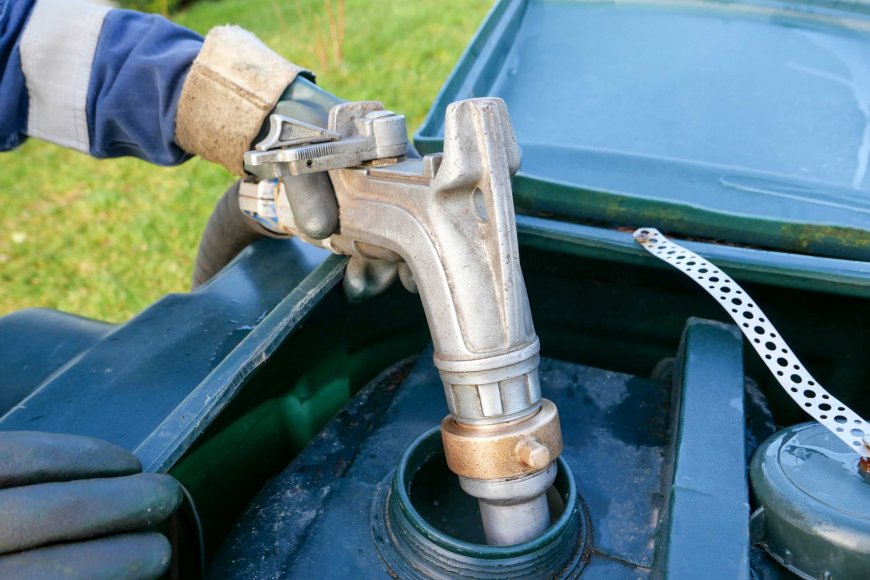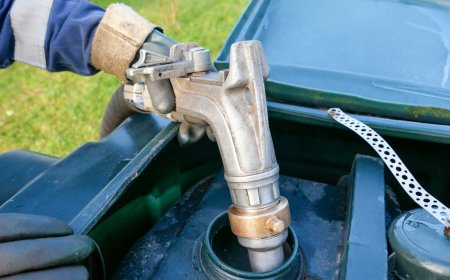Agricultural Fuel Suppliers: Powering the Heart of Modern Farming

Agriculture is one of the most fuel-dependent industries in the world. From planting to harvesting, running irrigation systems to drying grains, modern farming operations require a steady and reliable supply of fuel to power machinery and maintain efficiency. Agricultural fuel suppliers are the critical link that ensures farmers have access to the energy resources necessary to keep their operations running smoothly, especially during peak seasons.
Who Are Agricultural Fuel Suppliers?
Agricultural fuel suppliers specialize in providing fuel products specifically tailored to the needs of the farming sector. These suppliers differ from general fuel providers in that they understand the unique demands of agricultural operationssuch as bulk fuel deliveries, tax exemptions, and compliance with specific regulations regarding fuel use.
The typical products offered by agricultural fuel suppliers include red diesel (off-road diesel), gasoline, propane, kerosene, and increasingly, biofuels. Red diesel, a dyed fuel exempt from some taxes, is the most commonly used fuel in agriculture, powering tractors, combines, sprayers, and irrigation pumps. Propane is also frequently used for heating greenhouses, crop drying, and forklifts.
Importance of Agricultural Fuel Suppliers
Fuel is the lifeblood of modern agriculture. Heavy machinery such as tractors and harvesters consume large quantities of fuel daily, especially during critical periods like planting and harvesting. An interruption in fuel supply can lead to costly downtime, delayed operations, and reduced crop yields.
Agricultural fuel suppliers not only provide bulk fuel deliveries but also offer specialized services such as on-site storage tanks and automated fuel monitoring systems. These services help farmers manage their fuel usage more efficiently, ensuring they never run low at crucial moments.
Logistics and Delivery
One of the defining features of agricultural fuel suppliers is their logistics expertise. Delivering fuel in bulk to often remote farms requires careful planning, reliable transport fleets, and flexible scheduling. Many suppliers employ GPS tracking and automated delivery systems to optimize routes and ensure punctuality.
Additionally, modern agricultural fuel suppliers often offer remote monitoring technology, enabling farmers to track their fuel levels digitally. This just-in-time delivery approach minimizes the risk of running out of fuel and helps farms maintain continuous operation without unnecessary large stockpiles.
Compliance and Environmental Responsibility
Fuel storage and usage in agriculture are subject to environmental regulations and safety standards. Agricultural fuel suppliers assist farmers in navigating these regulations by providing compliant fuel storage tanks, spill containment solutions, and training on safe fuel handling.
Many suppliers also promote sustainable fuel options, including biofuels and lower-emission alternatives, helping farmers reduce their environmental impact and comply with evolving government standards aimed at sustainability.
Economic Impact and Community Role
Beyond fueling machinery, agricultural fuel suppliers contribute significantly to rural economies. They create jobs, support local businesses, and often act as emergency fuel providers during extreme weather or other crises that threaten farm operations.
Their prompt and reliable service supports the agricultural supply chain, enabling farmers to produce food efficiently and meet consumer demand.
Conclusion
Agricultural fuel suppliers play an indispensable role in modern farming by providing not just fuel but also expertise, logistics, and support services that enable efficient and sustainable agricultural production. As farming technology evolves and environmental concerns grow, these suppliers continue to adapt, offering new fuel types and smarter delivery solutions. Their partnership with farmers is essential to maintaining the productivity and resilience of agriculture worldwide.






































